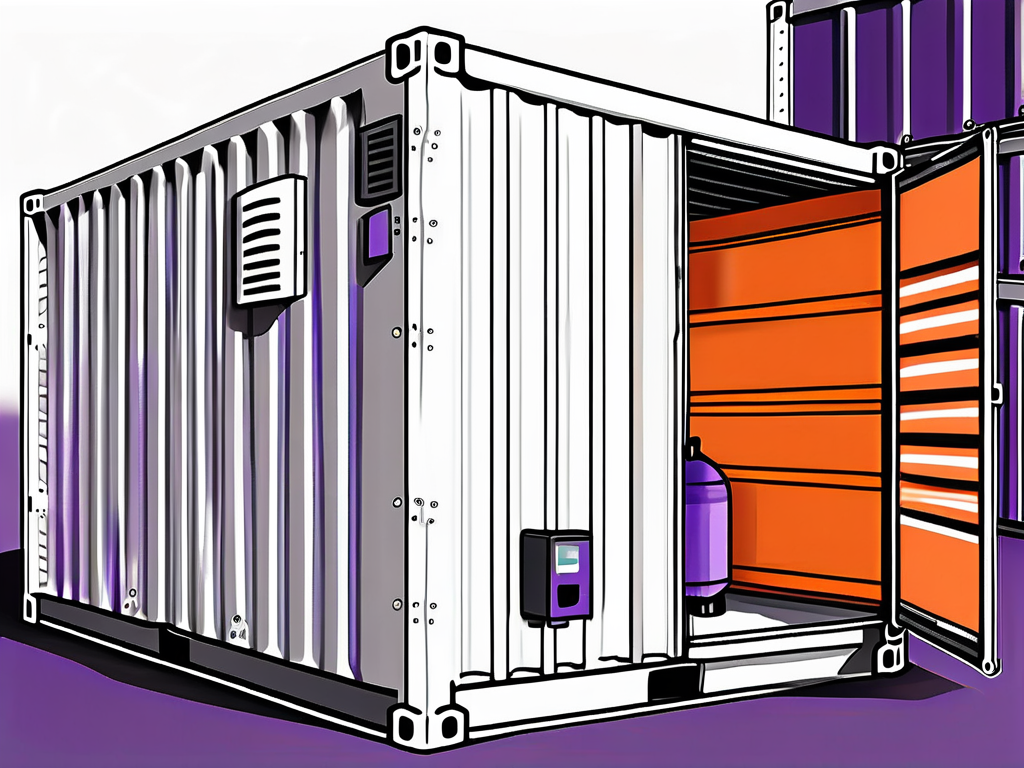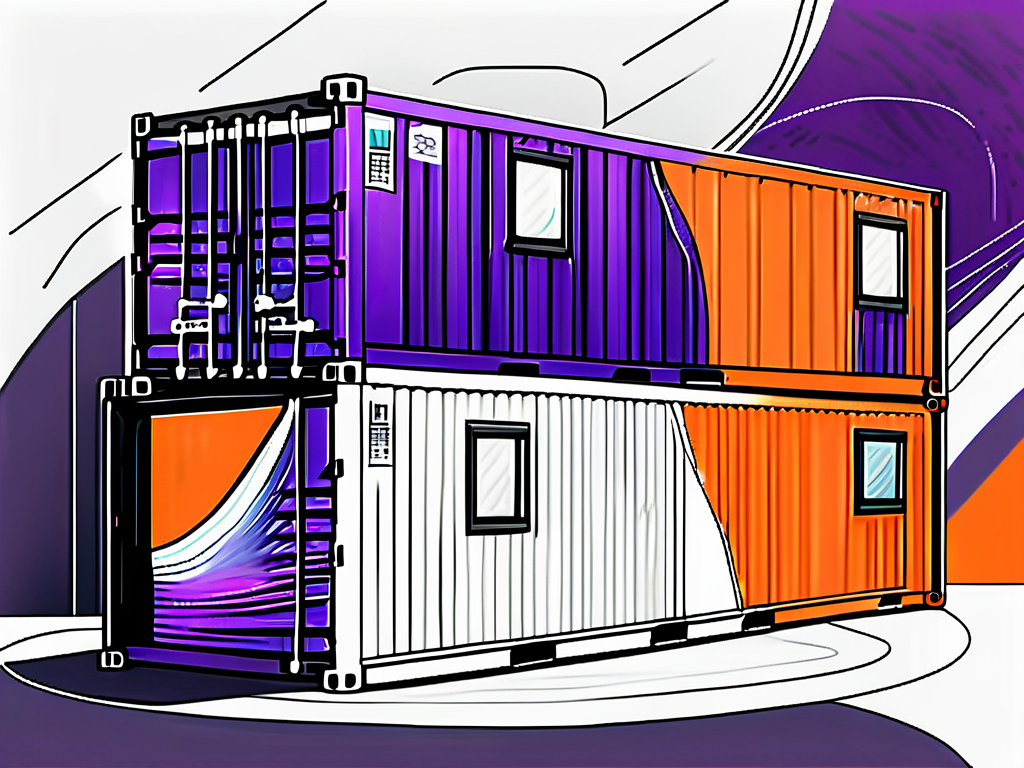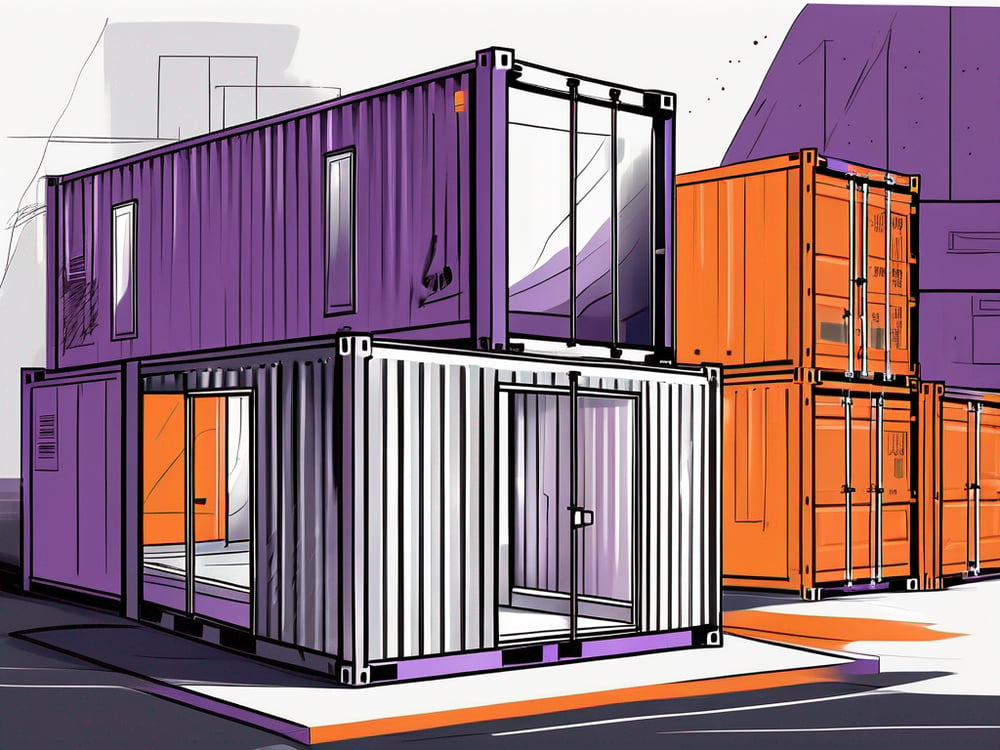Shipping containers are an integral part of the global trade industry, responsible for transporting a vast array of goods across long distances.
However, certain types of products require more specialized handling to ensure their quality and integrity throughout the journey. This is where ventilated shipping containers come into play.
These containers provide a controlled environment that allows for the proper circulation of air, preventing moisture buildup and temperature extremes.
In this article, we will explore:
- The necessity of ventilation in shipping containers
- Industries that benefit from ventilated shipping containers
- Challenges and solutions in using ventilated shipping containers
- Future trends in ventilated shipping container technology
Table of Contents
ToggleImportance of Ventilation in Shipping Containers and Which Industries Benefit from It
Ventilated shipping containers are necessary for transporting perishable goods or items sensitive to humidity, ensuring proper air circulation.
When it comes to preserving the quality of goods, ventilated containers are a game-changer. Many perishable goods, such as fruits, vegetables, and flowers, require a specific level of humidity to maintain their freshness.
Without proper ventilation, these goods can quickly deteriorate, resulting in significant losses for businesses. Ventilated containers allow for the regulation of humidity levels, ensuring that these goods retain their quality throughout the journey.
Key benefits of ventilated shipping containers:
- Humidity Control: Maintain the freshness of perishable goods by regulating humidity levels, preventing rapid deterioration of products such as fruits, vegetables, and flowers.
- Ethylene Gas Reduction: Extend the shelf life of produce by preventing the buildup of ethylene gas released by certain fruits and controlling ethylene levels.
- Moisture and Condensation Prevention: Ensure a dry environment crucial for sensitive goods like electronics and textiles by facilitating moisture escape, preventing mold and spoilage, and reducing condensation on container walls and ceilings.
- Temperature Regulation: Manage temperature fluctuations with insulation and ventilation mechanisms, allowing warm air to escape and cool air to enter, thus protecting temperature-sensitive goods like food products and pharmaceuticals from extreme heat or cold.
The benefits of ventilated shipping containers extend across a wide range of industries, from agriculture and farming to textiles and clothing, and even the electronics and machinery sectors.
Agriculture and Farming Industry
In the agriculture and farming industry, ventilated containers provide a lifeline for the transportation of fresh produce, including fruits, vegetables, and cut flowers.
These containers ensure that the quality and shelf life of these perishable goods are preserved, enabling farmers and producers to reach international markets. Furthermore, ventilated containers facilitate the export of live plants and seedlings, creating a favorable environment for their transit, preventing the risk of suffocation and ensuring their survival.
Textile and Clothing Industry
The textile and clothing industry heavily relies on ventilated shipping containers to transport delicate fabrics, garments, and accessories.
These containers protect the textiles from moisture, mold, and odors, ensuring that they reach their destination in pristine condition. Moreover, by regulating humidity levels, ventilated containers prevent garments from becoming musty or damp, preserving their quality and preventing damage during transit.
Electronics and Machinery Industry
Electronics and machinery are often subject to extreme temperature variations and moisture-related damage.
Ventilated shipping containers provide a solution by ensuring proper airflow to prevent the buildup of heat and condensation.
These containers also protect sensitive electronic components from static charges, which can occur when air is stagnant. By maintaining a constant flow of air, ventilated containers help safeguard valuable equipment during transportation.
Challenges and Solutions in Using Ventilated Shipping Containers

While ventilated shipping containers provide numerous benefits, they also present certain challenges that need to be addressed to ensure their effective use.
Dealing with Harsh Weather Conditions
Extreme weather conditions, such as heavy rain or high humidity, can pose challenges for ventilated containers. The ingress of excessive moisture during transit can undermine the container’s ability to maintain the desired environment for the transported goods.
To overcome this challenge, advanced ventilation systems equipped with moisture control mechanisms are being developed. These systems can detect and regulate the airflow in response to changing weather conditions, protecting the goods from potential damage.
Ensuring Proper Ventilation During Long Shipments
Long-distance shipments can place additional demands on the ventilation systems of shipping containers. Ensuring a consistent and adequate airflow throughout the entire journey is essential to preserve the quality of goods being transported.
In response to this challenge, innovations in container design and ventilation technology are being explored. This includes the development of sensors and monitoring systems that enable real-time monitoring of ventilation parameters, ensuring optimal airflow during extended shipments.
Future Trends in Ventilated Shipping Container Technology
The field of ventilated shipping containers continues to evolve, driven by the industry’s demand for enhanced functionality, sustainability, and eco-friendly designs.

Innovations in Ventilation Systems
Ongoing research and development efforts are focused on improving ventilation systems to ensure tighter control of humidity, temperature, and airflow. Advanced sensors and automation technologies are being integrated into the containers to optimize the ventilation process and minimize human intervention.
Some cutting-edge solutions even utilize natural ventilation methods, harnessing wind and solar energy to power the ventilation systems, reducing reliance on traditional power sources.
Sustainability and Eco-Friendly Designs
The increasing emphasis on sustainability has also influenced the design and construction of ventilated shipping containers. Manufacturers are exploring environmentally friendly materials and energy-efficient technologies to reduce the ecological impact of these containers.
Efforts are being made to incorporate recyclable materials into container construction, as well as introducing insulation materials that improve energy efficiency. Additionally, container designs are being optimized to reduce weight, leading to fuel savings during transportation.
As global trade continues to expand, the demand for ventilated shipping containers will only grow further. These containers ensure the safe and efficient transportation of delicate goods, enabling businesses to access global markets while maintaining product integrity.
The Essential Role of Ventilated Shipping Containers in Global Trade
By following these guidelines and implementing ventilated shipping containers, businesses can ensure their products remain in optimal condition throughout their journey.
Ventilated containers are vital for maintaining the quality of perishable and sensitive goods, reducing waste, and ensuring customer satisfaction. As technology advances, the integration of innovative ventilation systems and eco-friendly designs will continue to enhance the efficiency and sustainability of global trade.






